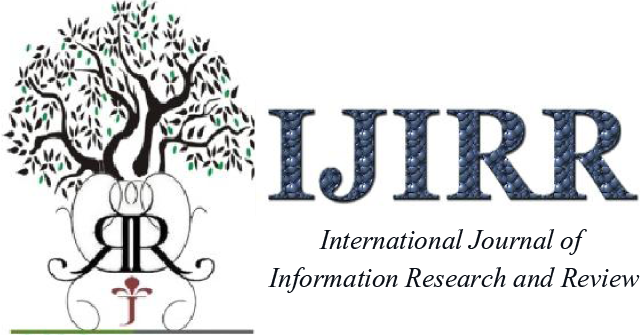Mini Review
Volume 1 Issue 1 - 2018
Early Life Events and Breast Cancer: Past Surgical History of Appendectomy and Tonsillectomy as an Example
Department of Medical Oncology, King Abdullah Medical City, Saudi Arabi
*Corresponding Author: Dr. Zuhair Alzibair, Department of Medical Oncology, King Abdullah Medical City, Saudi Arabi.
Received: February 06, 2018; Published: February 10, 2018
Introduction
36 years old female diagnosed as having right breast cancer T3N2M0, her disease was both hormone & HER-2 neu positive. The patient had no family history of breast or ovarian cancer. Her past medical history revealed having tonsillectomy at the age of 10 years and appendectomy at 12 yrs. Her menarche started at 13 years of age and now has regular menses. Her first child died at the age of 3 yrs with acute hepatic failure complicating cryptogenic biliary cirrhosis. Currently, she is taking care of another 3 children, all of them are a life and well. She is a smoker, has no other comorbidities and not on any chronic medications.
The main function of immune system is to maintain tissue homeostasis. In addition to the elimination of damaged cells, it protects against infectious pathogens [1].
Evading immune destruction was described as one of the emerging hallmarks of cancer by Hanahan and Weinberg. As enabling characteristic to this mechanism, the innate immune system may promote tumor inflammatory responses that result in enhancing tumorigenesis and facilitate angiogenesis and metastasis [2].
Experimental research has shown that immune system can hold the occult malignant process for some time while immune suppression can allow it to progress [3].
The role of lymphoid tissue including adenoid, tonsils and spleen as a part of immune system, has been described long time ago [4,5]. Although it is controversial, there is an accumulating evidence that appendix can be considered as a part of immune system. In several species, the appendix is a site of immune tissue(gut-associated lymphoid tissue; GALT) concentration [6-8].
The role of tonsillectomy, appendectomy, and splenectomy was evaluated mainly in regard to susceptibility and exposure to infection. Whether these surgical interventions, which are done routinely sometimes, have relation to future development of cancer is a field of clinical research that can be focused on. This could be important since we are in the era where the cancer therapeutic strategies started to target body immunity rather than the cancer cell itself.
Objectives
This article is a literature minireview trying to explore the relationship between breast cancer and past medical history of these surgical interventions in clinical practice. For its importance and the strong relationship, we included the history of splenectomy in our review although it was not there in the clinical presentation given above.
This article is a literature minireview trying to explore the relationship between breast cancer and past medical history of these surgical interventions in clinical practice. For its importance and the strong relationship, we included the history of splenectomy in our review although it was not there in the clinical presentation given above.
Results
The of Investigation of the relationship between tonsillectomy, appendectomy, and carcinogenesis is not a recent issue. This was based on the assumption that the human immunity is weakened by the additional reduction of the lymphoid tissue in patients who have other genetic predisposition to develop cancer [9]. In one study a significant positive association of breast cancer with the history of tonsillectomy, which persisted after multivariate adjustment, among premenopausal (OR 1.50, 95% CI: 1.08–2.08) but not among postmenopausal women (OR 1.05, 95% CI: 0.79–1.38) was observed [10]. Another study from Taiwan related higher incidence of breast cancer after tonsillectomy the difference was noticed 3 yrs or more after the operation [11].
A Danish study included around 82.000 patients, a follow up of 17 years interval showed a slightly higher incidence of cancer 1.05 CI 0.99-1.11 among appendicectomies patients compared to general population. There was no specific excess to any type of cancer [12].The authors concluded a negative association between the procedure and development of cancer.
An observational study from Israel collected data on appendectomy, cancer type and age at the time form diagnosis in BRCA1 and BRCA2 female Jewish carriers. Overall 38.7% of the mutation carriers had breast cancer (367/947). The P value was 0.001in breast/ovarian cancer when compared to asymptomatic carriers. The study found that prior appendectomy was more in BRC1& BRCA2 carriers having breast and ovarian cancer than in asymptomatic carriers [13].
Another observational study from China included around 1500 patients studied the incidence of gastric, colorectal and breast cancer in relation to the previous appendectomy. The incidence of appendectomy was higher in the cancer group (P less than 0.001). Again, this was significant for breast cancer (P less than 0.01) when it was related to cancer location. When the results were analyzed by age the difference was only significant to the age group of 50-59 years. The authors support the concept that appendectomy may influence cancer risk [14].
A Scottish retrospective observation done in the 1960s included approximately 1000 patients did not suggest any correlation between appendectomy, breast, colon and cervical cancer [15]. In a study included 136 females, the incidence of breast cancer with investigated in patients diagnosed with Hodgkin’s disease and treated with mantle field or mediastinal radiation. Splenectomy was an independent risk factor [16].
In a Swedish study, a large cohort of children performed appendectomy were followed until the age of 40. There was a significant excess of stomach cancer and a borderline increase in NHL but nothing was specific about breast cancer. The difference was noticed 15 yrs after the appendectomy. The authors recommended further monitoring for this cohort [17]
In a Danish retrospective study, 6315 splenectomized patients were included. No increased risk for cancer was observed among patients who underwent splenectomy due to trauma. In contrast, there were excesses of a number of specific cancers among patients who underwent splenectomy for non-traumatic reasons, the authors stated that this could be attributed to the factors related to the underlying disease and/or treatment of the disease [18]. Similar results have been obtained from a Taiwanese nationwide population-based study. The incidence was higher for some site-specific cancers, however, breast cancer was not among one of those [19].
A 40% higher risk of cancer was found among Swedish patients undergoing splenectomy for nonmalignant causes in a study included around 1300 patients.There was a significant increase in lung and ovarian cancer in this population. The elevated cancer risk was experienced by patients splenectomized at the age of 30 years or younger [20].
Discussion
The relationship between appendectomy, tonsillectomy, splenectomy and development of breast cancer is still not confirmed. Further clinical and translational research is required. A larger population is needed in each study to influence future results. The studies which are discussed above are coming from few certain countries. Cohorts from different ethnicities may help to detect any association between these procedures and cancer incidence. Since that carcinogenesis process is multifactorial, introducing genetic epidemiology in future studies may help the exact at-risk population performing these surgeries in breast cancer patients as well as in other types of cancer. Taking into consideration the subset of cancer patients with past surgical history of these procedures included in large randomized studies, whenever possible may help to understand whether their disease course/behavior is different from other patients. This as well as their tolerance and response to cancer treatment including immunotherapy.
Conclusions
Future research may elaborate more correlation between these procedures and carcinogenesis of breast cancer, in addition to the possible impact on tolerance and response to novel cancer therapies.
References
- KE De Visser., et al. “Paradoxical roles of the immune system during cancer development”. Nature Reviews Cancer 6.1 (2006): 24-37.
- D Hanahan and RA Weinberg. “Hallmarks of cancer: The next generation”. Cell 144.5 (2011): 646-674.
- CM Koebel., et al.“Adaptive immunity maintains occult cancer in an equilibrium state”. Nature 450.7171 (2007): 903-907.
- EF Ellis and RT Smith. “The Role of the Spleen in Immunity”. Pediatrics 37.1 (1966): 111 LP-119.
- CF Kuper., et al. “The role of nasopharyngeal lymphoid tissue”. Immunology 13.6 (1992): 219-224.
- M Laurin., et al. “The Cecal Appendix: One More Immune Component With a Function Disturbed By Post-Industrial Culture”. Anatomical Record 294.4 (2011): 567-579.
- RJ Berry. “The True Caecal Apex, or the Vermiform Appendix: It's Minute and Comparative Anatomy”. Journal of Anatomy and Physiology 35.Pt 1 (1900): 83-100.
- HF Smith., et al. “Comparative anatomy and phylogenetic distribution of the mammalian cecal appendix”. Journal of Evolutionary Biology 22.10 (2009): 1984-1999.
- L Gross. “Incidence of appendectomies and tonsillectomies in cancer patients”. Cancer19.6 (1966): 849-852.
- TM Brasky., et al. “Tonsillectomy and breast cancer risk in the Western New York Diet Study”. Cancer Causes Control20.3 (2009): 369-374.
- LM Sun., et al. “Splenectomy and increased subsequent cancer risk: A nationwide population-based cohort study”. The American Journal of Surgery 210.2 (2015): 243-251.
- L Mellemkjær C., et al. “Cancer risk following appendectomy for acute appendicitis (Denmark)”. Cancer Causes Control9.2 (1998): 183-187.
- S Bernholtz A., et al. “Appendectomy and cancer risk in Jewish BRCA1 and BRCA2 mutation carriers”. Breast Cancer Research and Treatment 131.3 (2012): 981-985.
- YK Fan and CC Zhang. “Appendectomy and cancer--an epidemiological evaluation”. Chinese Journal of Oncology 8.3 (1986): 212-214.
- JGR Howie and WR Timperley. “Cancer and appendectomy”. Cancer19.8 (1966): 1138-1142.
- CT Chung., et al. “Increased risk of breast cancer in splenectomized patients undergoing radiation therapy for Hodgkin’s disease”. International Journal of Radiation Oncology 37.2 (1997): 405-409.
- JU Cope., et al. “Appendectomy during childhood and adolescence and the subsequent risk of cancer in Sweden”. Pediatrics111.6 Pt1 (2003): 1343-1350.
- L Mellemkjøer J., et al. “Cancer risk after splenectomy”. Cancer 75.2 (1995): 577-583.
- M Li-Min Sun., et al. “A Nationwide Population-Based Cohort Study on Tonsillectomy and Subsequent Cancer Incident”. Laryngoscope125.1(2015): 134-139.
- MS Linet., et al. “Risk of cancer following splenectomy”. International Journal of Cancer 66.5 (1996): 611–616.
Citation:
Zuhair Alzibair and Wael Mohammed. “Early Life Events and Breast Cancer: Past Surgical History of Appendectomy and Tonsillectomy
as an Example”. Holistic Approaches in Oncotherapy 1.1 (2018): 23-26.
Copyright: © 2018 Zuhair Alzibair and Wael Mohammed. This is an open-access article distributed under the terms of the Creative Commons Attribution License, which permits unrestricted use, distribution, and reproduction in any medium, provided the original author and source are credited.



































 Scientia Ricerca is licensed and content of this site is available under a Creative Commons Attribution 4.0 International License.
Scientia Ricerca is licensed and content of this site is available under a Creative Commons Attribution 4.0 International License.